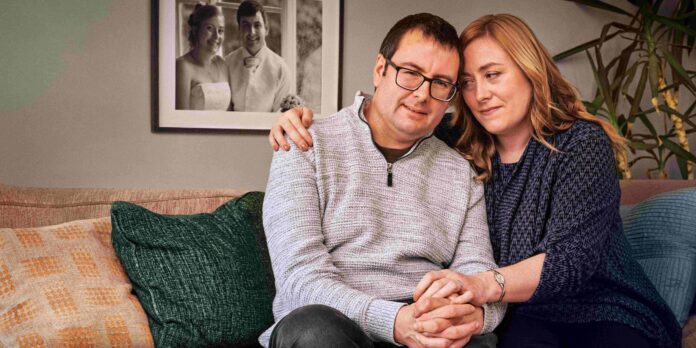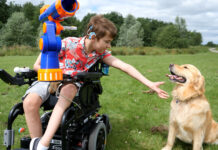With over 50,000 people living with dementia in Wales, many of whom are in relationships, Alzheimer’s Society Cymru has issued some relationship guidance to help affected couples better maintain their relationship following the charities recently launched ‘Ultimate Vow’ campaign.
Dementia can put a strain on a romantic relationship. This can be caused by the person’s difficulties with memory and communication, as well as changes in their energy levels, motivation and interests. Emotional or physical connections with others may also be affected. However, as abilities change, there can be ways to help maintain a positive relationship.
- Establish healthy ways to communicate – This could include the person with dementia telling their partner what they find difficult and how they would like to be helped. For example, the person might like to be gently reminded of someone’s name or what they were discussing in an earlier conversation. Other things that may help improve communication includes:
- Turning off distractions such as a TV or radio so they can focus on the conversation
- Giving enough time to respond
- Speaking slowly and using shorter sentences than usual
- Keeping eye contact with each other, which can also help maintain an emotional connection
- Understand how intimacy may have changed – both partners may find that they have either lost or gained interest in certain aspects or physical or emotional intimacy since diagnosis. If one partner experiences reduced interest, they might like to try new hobbies or activities together or dedicate a day to having quality time for the two of them to re-establish their romantic connection. If only one partner’s interest in sex or physical intimacy has increased, both partners need to discuss this to find out how what they feel will works for them. It is important that all activity is consensual and respectful, and that nobody does anything they do not want to.
- Adapt tasks as roles change – the roles that both partners once held will change throughout the dementia journey. For example, the person with dementia might begin to find it difficult to help with chores around the house, assist with financial or legal matters, or continue working or driving. They could feel dependent on their partner, which can cause stress and frustration for both parties. Looking at ways to adapt tasks is a good starting point, and both partners can work together on this as a team. One partner may feel more tired than normal if they have taken on more of the household chores and responsibilities. Supporting the person with dementia to continue helping where they can, will be beneficial for both partners.
- Changing plans – couples don’t necessarily need to cancel any booked plans such as going on holiday or moving home. However, for some people there may be a good reason why they need to change plans or put them on hold. For example, they might have to make changes to a holiday or theatre trip because the person with dementia has developed difficulties with memory or concentration. This might make both parties feel disappointed or frustrated. Being honest and communicating with each other is important. It can help to look at ways to adapt to the person’s changing abilities and focus on what types of holidays or trips are possible.
- Accessing help – if a relationship was difficult before dementia, this can make it hard for a partner to want to take on a caring role. They may carry negative feelings from the past that can affect how they feel about their partner now. For example, they may feel resentful or angry that they are caring for the person in what has been a difficult relationship where they do not feel their partner has treated them as they should have. It can be useful to look at ways to develop a healthier relationship with the person. This might include support from a counsellor or therapist. A good starting point for this is through talking to the GP, an organisation such as Relate, or finding a private counsellor.
Caring for a partner with dementia is fulfilling the ultimate relationship vow. But navigating through ‘in sickness and health’ can be overwhelming. Alzheimer’s Society Cymru vows to help end the devastation caused by dementia, providing help and hope for everyone affected. Visit the website for more information or to donate: alzheimers.org.uk
Help keep news FREE for our readers
Supporting your local community newspaper/online news outlet is crucial now more than ever. If you believe in independent journalism, then consider making a valuable contribution by making a one-time or monthly donation. We operate in rural areas where providing unbiased news can be challenging. Read More About Supporting The West Wales Chronicle
























